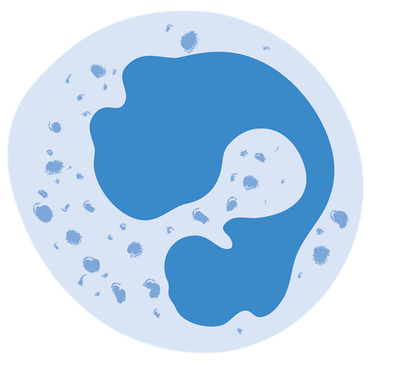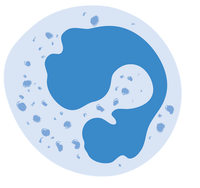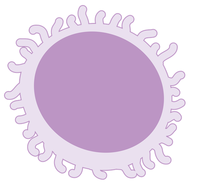Difference between revisions of "White Blood Cell"
| Line 22: | Line 22: | ||
: '''White blood cells''' make up less than 1% of the [[blood]]. | : '''White blood cells''' make up less than 1% of the [[blood]]. | ||
: '''White blood cells''' are produced in the [[Bone Marrow|bone marrow]]. | : '''White blood cells''' are produced in the [[Bone Marrow|bone marrow]]. | ||
| − | : '''White blood cells''' can weaken and kill [[pathogen]]s including [[virus]]es, [[Pathogenic Fungus|fungi]], [[Pathogenic Bacteria|bacteria]] and [[ | + | : '''White blood cells''' can weaken and kill [[pathogen]]s including [[virus]]es, [[Pathogenic Fungus|fungi]], [[Pathogenic Bacteria|bacteria]] and [[Pathogenic Protist|protists]]. |
There are two main types of '''white blood cell''' that you should know: | There are two main types of '''white blood cell''' that you should know: | ||
*[[Phagocyte]]s - Which engulf and then break down [[pathogen]]s. | *[[Phagocyte]]s - Which engulf and then break down [[pathogen]]s. | ||
Revision as of 08:45, 11 November 2018
Contents
Key Stage 3
Meaning
A white blood cell is a specialised cell which is used to fight infection.
Adaptations of White Blood Cells
- White blood cells have a large nucleus to make antibodies to fight infection.
About White Blood Cells
- White blood cells are part of the immune system.
- White blood cells are specially adapted to fight infection.
Key Stage 4
Meaning
White Blood Cells are specialised animal cells which protect the body from pathogens.
About White Blood Cells
- White blood cells make up less than 1% of the blood.
- White blood cells are produced in the bone marrow.
- White blood cells can weaken and kill pathogens including viruses, fungi, bacteria and protists.
There are two main types of white blood cell that you should know:
- Phagocytes - Which engulf and then break down pathogens.
- Lymphocytes - Which produce antibodies which attach themselves to pathogens to make it easier for the phagocytes to engulf them and produce antitoxins to cancel out the effects of toxic chemicals made by the pathogens.
| A drawing of a phagocyte. | A drawing of a lymphocyte. |


